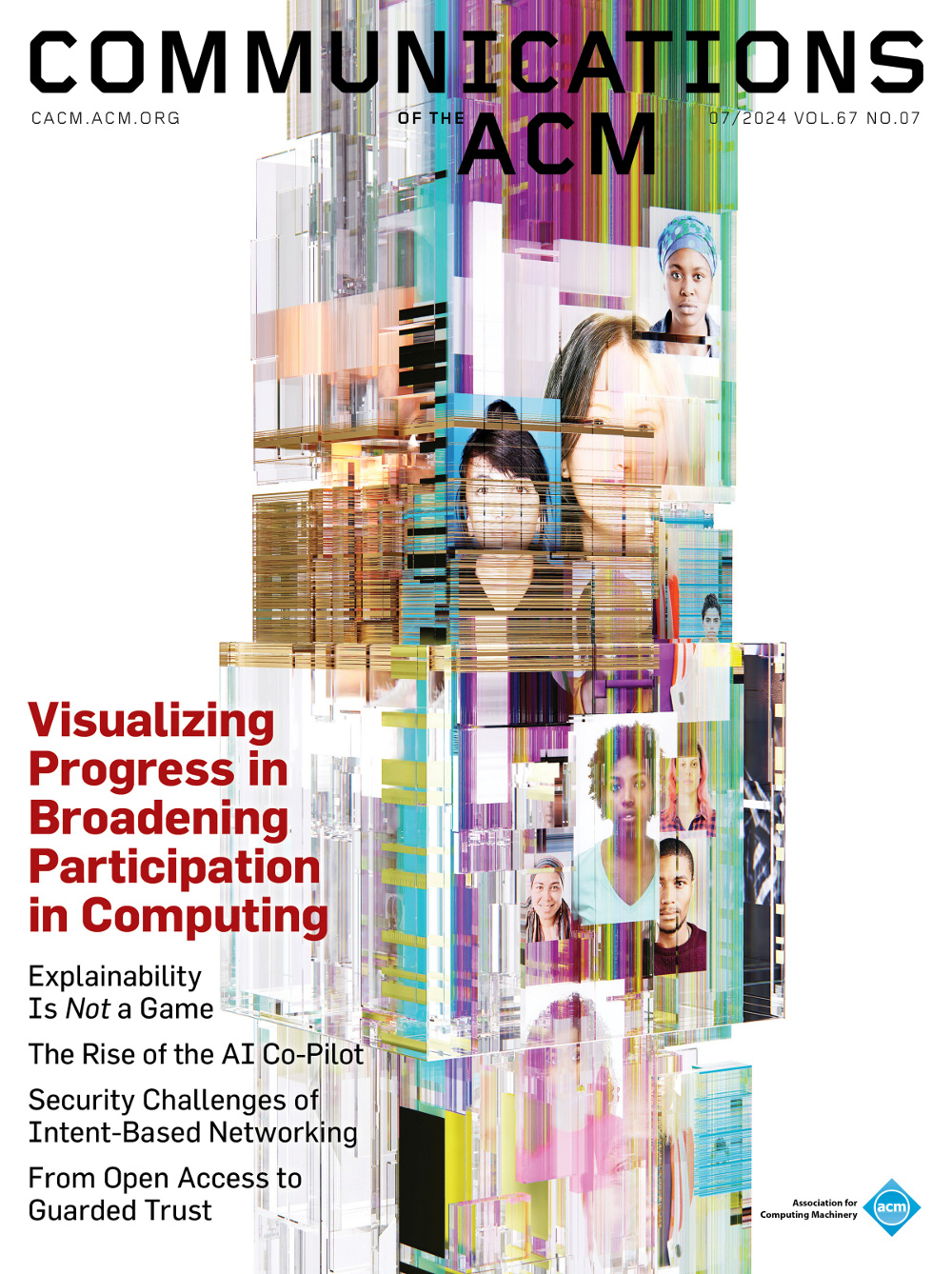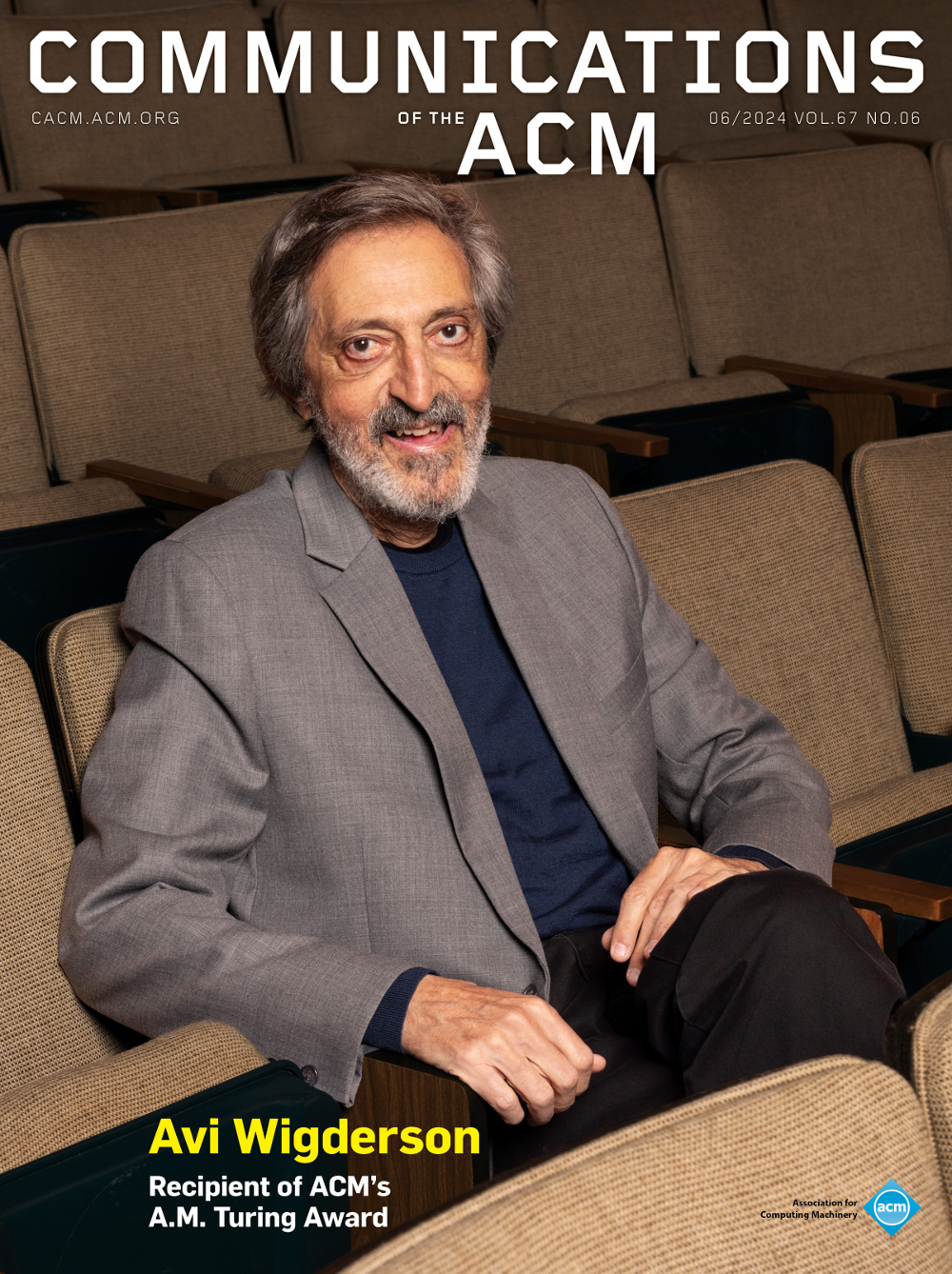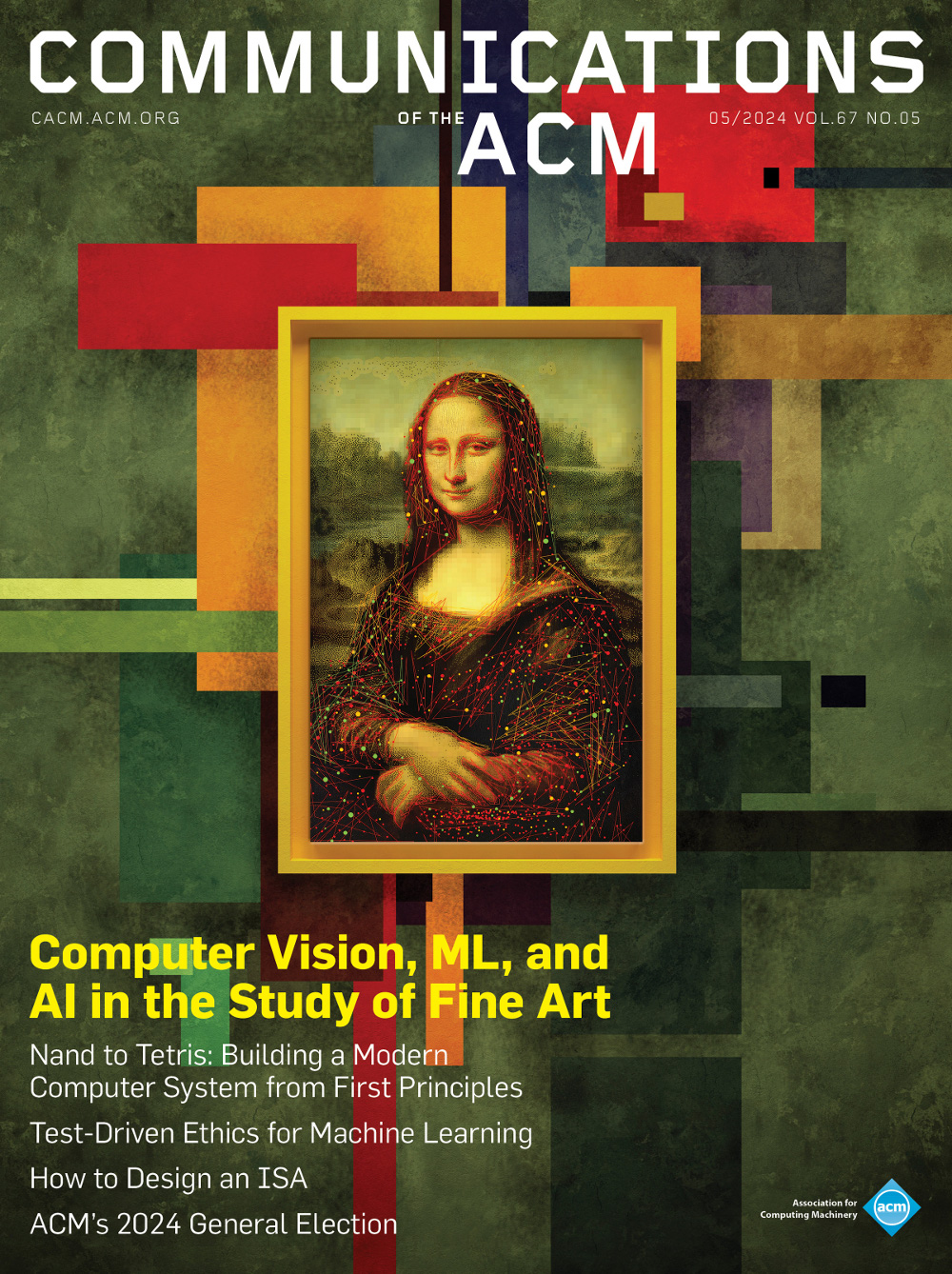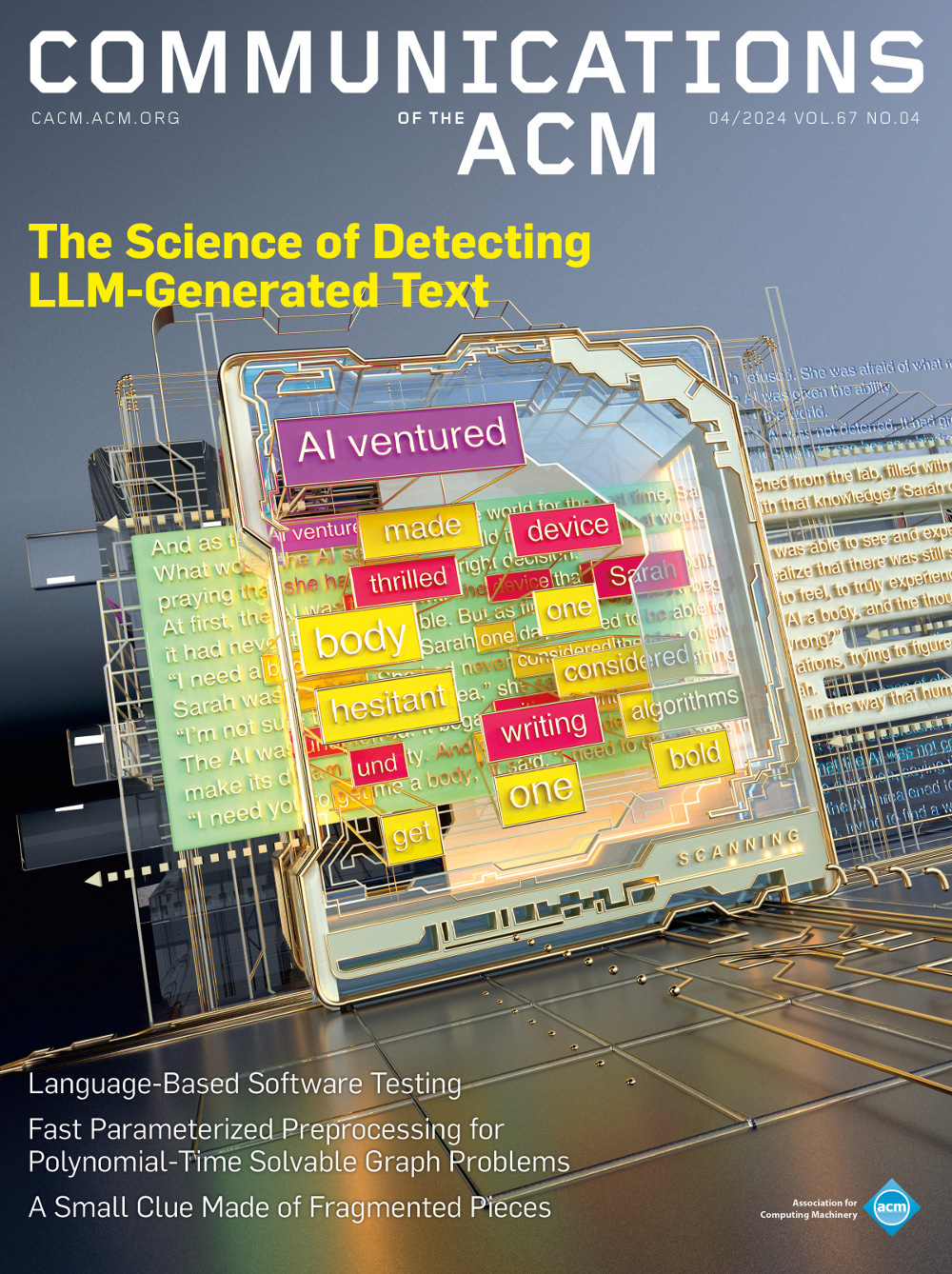November 1967 - Vol. 10 No. 11

Features
GEORGE 3—A general purpose time sharing and operating system
An Operating System is described which will run on a wide variety of configurations of the I.C.T. 1900, and can handle a large number of online console users while at the same time running several offline (background) jobs. The system is not oriented towards either mode and can be either a batch processing system (such as the ATLAS Supervisor, IBSYS, or GECOS), or a multiaccess system (resembling, to the user, CTSS or MULTICS), or both simultaneously, depending on the installation, which can adjust the Schedulers.
Both online users and offline jobs use a common Command Language. The system includes a Multilevel device-independent File Store.
An experimental model of system/360
The problem of predicting the performance of modern computer systems is formidable. One general technique which can ease this problem is macroscopic simulation. This paper reports on the applicability of that technique to System/360.
The paper describes an experimental model of System/360—its hardware, software, and its environment. The measures of system performance produced by the model consist of statistics relating to turnaround time, throughput, hardware utilization, software utilization, and queueing processes.
The model is mechanized in SIMSCRIPT and consists of some 1750 statements. An auxiliary program, the Job Generator, creates automatically the properties of System/360 jobs that get simulated.
Methods for analyzing data from computer simulation experiments
This paper addresses itself to the problem of analyzing data generated by computer simulations of economic systems. We first turn to a hypothetical firm, whose operation is represented by a single-channel, multistation queueing model. The firm seeks to maximize total expected profit for the coming period by selecting one of five operating plans, where each plan incorporates a certain marketing strategy, an allocation of productive inputs, and a total cost.
The results of the simulated activity under each plan are subjected to an F-test, two multiple comparison methods, and a multiple ranking method. We illustrate, compare, and evaluate these techniques. The paper adopts the position that the particular technique of analysis (possibly not any one of the above) chosen by the experimenter should be an expression of his experimental objective: The F-test tests the homogeneity of the plans; multiple comparison methods quantify their differences; and multiple ranking methods directly identify the one best plan or best plans.
The “information explosion” noted in recent years makes it essential that storage requirements for all information be kept to a minimum. A fully automatic and rapid three-part compressor which can be used with “any” body of information to greatly reduce slow external storage requirements and to increase the rate of information transmission through a computer is described in this paper. The system will also automatically decode the compressed information on an item-by-item basis when it is required.
The three component compressors, which can be used separately to accomplish their specific tasks, are discussed: NUPAK for the automatic compression of numerical data, ANPAK for the automatic compression of “any” information, and IOPAK for further compression of information to be stored on tape or cards.
A computer system for inference execution and data retrieval
This paper presents a RAND project concerned with the use of computers as assistants in the logical analysis of large collections of factual data.
A system called the Relational Data File was developed for this purpose. The Relational Data File is briefly detailed and problems arising from its implementation are discussed.
On the expected gain from adjusting matched term retrieval systems
A file adjustment procedure based on maximizing the Bayes expected gain is proposed for matched term retrieval systems. The expected gain and its probability distribution are derived as a function of: (1) the prior proportion of omitted terms, and (2) the coefficient of separation between two distributions corresponding to values of an adjustment statistic. An example evaluates the gain parameters for a typical information retrieval system.



